Whitewashing ‘Watchmen’
HBO’s “Watchmen” has been critically acclaimed, mostly for its willingness to tackle issues of race head-on.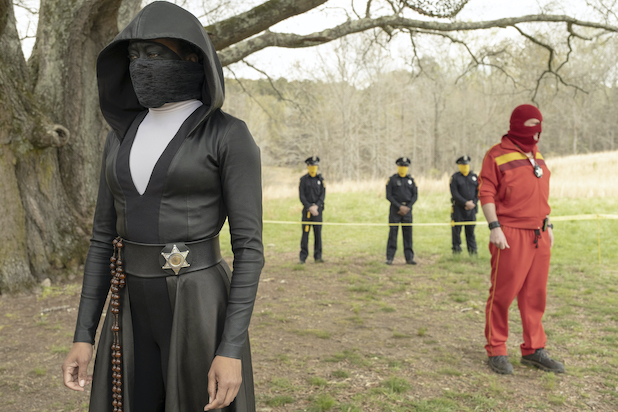 Regina King delivers justice as a cop-turned-superhero in HBO's "Watchmen." (HBO via IMDb)
Regina King delivers justice as a cop-turned-superhero in HBO's "Watchmen." (HBO via IMDb)
“Watchmen” is a masterpiece of comics literature. Intricately plotted and beautifully illustrated, Alan Moore and Dave Gibbons’ 1986 stand-alone maxi-series explores what our world be like if superheroes really existed. Moore suggests that a group of unaccountable masked crusaders would be a corrupting force culturally and politically, ushering in an interminable Nixon-led dystopia.
Moore’s central indictment of the superhero myth as white supremacist and fascist (Moore has stated “Birth of A Nation” is perhaps the first superhero film) is barely considered during the pseudo-sequel HBO television series “Watchmen.” Instead, the show replaces Moore’s deep critique of the superhero genre as corrosive to reality with a largely baffling fantasy tale that has only a superficial interest in the real world.
HBO’s “Watchmen” has been critically acclaimed, mostly for its willingness to tackle issues of race head-on. While the show does explicitly bring up race and racism in ways most big-budget prestige dramas avoid, it has very little to say about the issues. While Moore surmised that superheroes would spend their time trying to quash “black unrest” during the civil rights era, the reboot’s creator, Damon Lindelof, instead sees the new series’ masked vigilante, Sister Night, played by Regina King, as a force for racial justice—but only to a point. In fact, almost all the racial elements of the show are cast in the broad terms of superheroes and supervillains that have become standard issue in the comic-book genre.
The opening scene of the first episode is a brutal recreation of Tulsa’s Black Wall Street massacre of 1921, which left as many as 300 people dead, almost all black. It is one of the most horrific and vile acts of racial violence in America’s history, but in later episodes of HBO’s “Watchmen,” it’s treated as little more than a superhero origin story analogous to the destruction of Krypton, Superman’s home planet. The show later reveals that the events of the Tulsa massacre—which, again, actually happened—were caused by a super-villainous secret organization called Cyclops.
The hero the Tulsa massacre produces is the first masked superhero from “Watchmen” lore, Hooded Justice. In the comic, Hooded Justice is a violent racist who expressed sympathy for the Nazi Party. Lindelof’s version reimagines him as a black police officer named Will Reeves, who barely escaped Tulsa as a five-year-old.
After Reeves is brutally attacked by white police officers, who happen to be members of Cyclops, he expresses his pent-up anger at decades of extreme racist violence—not by attacking the racist supervillain police officers, but by donning a mask and stopping a white couple from being assaulted by random hoodlums.
Only years later, when the same racist supervillain police officers whom “superhero” Will has allowed to operate for years use a hypnotic film projector to trigger the slaughter of a theater audience of black patrons does he decide to step up. However, the show frames Will’s ultra-violent assault on the racist supervillains, whose plans involved sending hypno-projectors across the country, as a low point for the character. To drive the point home, Will’s wife leaves him in the very next scene for being too angry.
The show’s message about race is further muddled by the fact that in present-day Tulsa, Cyclops members spend most of their time targeting police officers because they feel that liberal President Robert Redford has made the police too protective of black people. More confounding, President Redford’s police reforms have rendered the police unable to effectively fight the white terror organization, and a black cop is gunned down because he could not get approval to unlock his gun in time.
Even as pure fantasy, “Watchmen” demonstrates a startling lack of imagination about how to address race in a world of superheroes. What if there were a show about a badass black female superhero played by Regina King? Of course, she’d have to be a police officer. What if liberals took control of the government and instituted reparations? There’d be a tax credit given only to black people who can prove, through DNA, that they are descendants of victims of specific acts of racial violence, and it would all just make white people more racist. What if Dr. Manhattan, a godlike being who can do almost anything with his powers, became a black man? He’d give up those powers to become a stay-at-home dad.
At one point, Will tells his granddaughter Angela Abar, who transforms into masked superhero Sister Night, “You can’t heal under a mask … wounds need air.” This banal line encapsulates the truly unimaginative theme of the show. As Lindelof helpfully explained in an episode of “The Official Watchmen Podcast,” “Anger is camouflage for fear or sadness or both. If you are a person of color in the United States of America … there’s a lot of things to scare you and even more to make you sad. … The answer is not to wear a mask.”
While Lindelof is the first to admit he is generally clueless about issues of race—he first heard of the Tulsa massacre after reading the work of Ta-Nehisi Coates shortly before beginning production on the show—he nevertheless made the decision to use real black trauma and real black pain in his show. And what does the show say to black people? Anger is a mask and things won’t get better until we let it go.
With daily reminders that racist violence is not a thing of the bygone past, as white supremacist views are expressed openly and not in supervillain hideouts, “Watchmen’s” racial politics seem like a dispatch from a “post-racial” Obama-era style of liberalism. The alternate world of HBO’s “Watchmen” is one in which fighting white supremacy head-on is ultimately less important than making peace with your anger at white supremacy, even if you’re a superhero.
Your support is crucial...As we navigate an uncertain 2025, with a new administration questioning press freedoms, the risks are clear: our ability to report freely is under threat.
Your tax-deductible donation enables us to dig deeper, delivering fearless investigative reporting and analysis that exposes the reality beneath the headlines — without compromise.
Now is the time to take action. Stand with our courageous journalists. Donate today to protect a free press, uphold democracy and uncover the stories that need to be told.


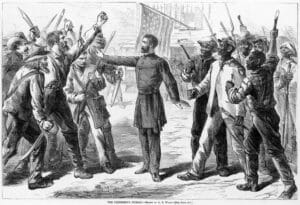
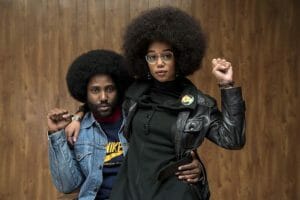
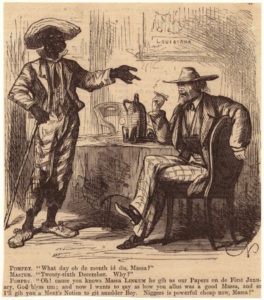
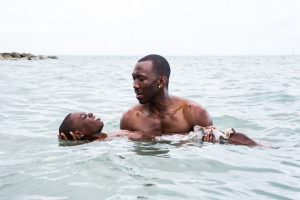
You need to be a supporter to comment.
There are currently no responses to this article.
Be the first to respond.